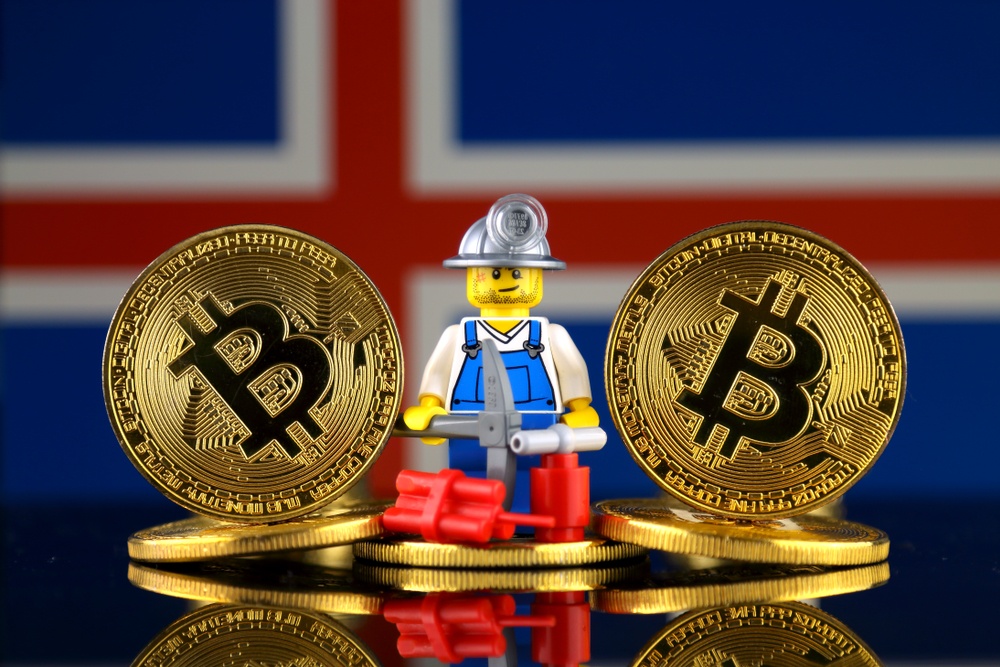Bitcoin Miners Unphased by Iceland’s Cold Shoulder as Energy Demand Mounts

Iceland's most recent beef with bitcoin miners involves power generation expansion needs. | Source: Shutterstock
By CCN.com: Iceland has been a hotbed for bitcoin mining for years, fueled by its cheap geothermal power. However, the Nordic island nation is pumping the brakes on more crypto mining as it seeks to thwart accelerating energy demand.
Last year, Icelandic authorities targeted crypto miners for higher taxes amid the industry’s huge electricity consumption. Now, it seems that a growing organic movement within the country sees mining expansion as a potential environmental hazard, too.
Bitcoin miners are increasingly viewed as an existential threat to Iceland’s unrivaled and largely untouched countryside, according to an Al-Jazeera special report. A coalition of environmentalists, researchers, and activists oppose the growth of what was until recently touted as a job-creating industry of the future. Iceland is in a conundrum, however, as bitcoin miners show little sign of slowing down.
Iceland’s Geothermal Perfect Storm
Iceland’s unique North Atlantic location is home to a nexus of geothermal activity, which makes geothermal power generation extremely easy and cheap relative to global electricity prices. Consequently, crypto miners have identified Europe’s Scandinavian region – Iceland in particular – as a bitcoin mining goldmine. Apart from cheap power, naturally-low temperatures are also appealing. This makes cooling mining rigs much easier and cheaper, further enhancing profit in a tight-margin business.
For years, the accepted narrative within the cryptosphere has been that using renewable energy in bitcoin mining cancels out the notorious talking point that bitcoin mining is environmentally unfriendly due to the size of the carbon footprint. However, Icelandic environmentalists note that rising electricity demand for mining activities is leading to an expansion of geothermal and hydroelectric power generation infrastructure.
As they point out, the process of creating “clean” energy is not so green, after all. For one thing, constructing new hydroelectric dams alters landscapes and topography irreversibly by sinking virgin countryside and changing the nature of rivers and waterfalls. Geothermal power stations must be constructed over natural hot spring areas to access the heat coming out of the earth’s core. This also permanently alters Iceland’s untouched landscape.
Environmentalist Tomas Gudbartsson is quoted in Al Jazeera as saying:
“Iceland still has one of the biggest wilderness areas in Europe. We will simply destroy these areas if we continue.”
Iceland’s Bitcoin Mining Risk Factors
The trouble for Icelandic environmentalists is that crypto mining expansion is poised to grow even faster than before. First of all, sustained low prices in the crypto market continue to make mining a very low-margin business. Miners must look for every advantage over their peers to make themselves more competitive and profitable. Iceland’s cheap power and fiercely cold temperatures provide the perfect combination for miners looking to squeeze maximum performance out of their rigs for minimum investment.
Moreover, following a relatively weak but sustained crypto price rebound year-to-date, crypto mining is actually increasing in popularity. This is further complicated by the Chinese government’s recent decision to crack down on crypto miners domiciled in energy-rich areas like the Sichuan Valley region. Many of these miners will end up moving to Iceland and neighboring countries.
What looks even more likely to stick in Iceland’s craw is that despite bitcoin mining’s energy-hungry nature, it remains a relatively automated activity that produces few, if any, jobs. Essentially, Iceland may welcome evicted Chinese miners into the country only to see them drive up energy needs and indirectly lead to environmental destruction while doing little to nothing for the local economy.